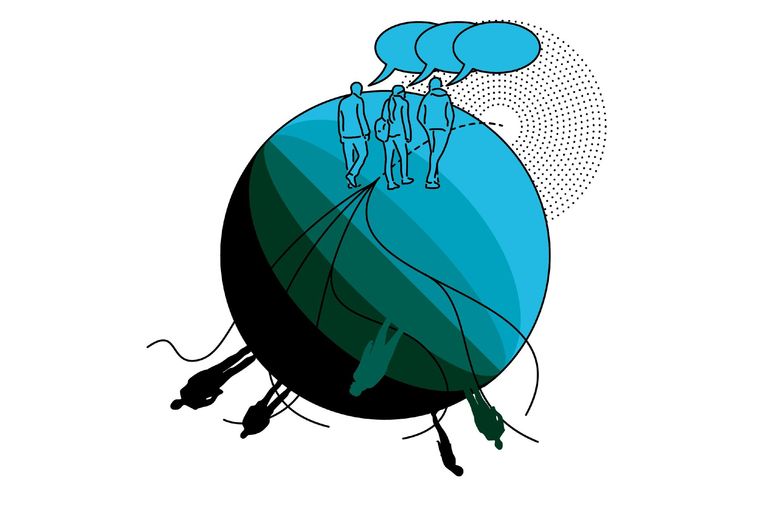Shared Values, Visions, and Pathways for Sustainability

Using six priority themes, the "White Paper on Sustainability Research" outlines Switzerland's most urgent research needs in order to meet the UN Sustainable Development Goals.
‘Sustainability’, far from being an objectively defined concept, is underpinned by assumptions, discursive elements, values and paradigms, many of which are implicit and even contradictory. These need to be identified and debated so that we can develop a shared vision of a sustainable future and a strategy for achieving it. The scientific community can support this societal process with research that is collaborative and inclusive.
Key unresolved questions
Read White Paper on Sustainability Research:
Podcast on sustainable visions for the future - this is what our lives could look like in 2035 (Shared values, visions and pathways to sustainability)
How can we live more sustainably without massive sacrifices ? How can our lives look more climate neutral ? Can we find a new consensus on meeting the legitimate needs of all people while protecting the climate and our environment? The scientific community can support this social process with collaborative and inclusive research. The Institute for Social Research in Geneva is conducting research on what everyday life, energy use and our well-being could look like in the future. With the help of personas, the research team led by Prof. Dr. Marlyne Sahakian has created life examples that represent a more climate-neutral life in 2035.
Orlane Moynat is a PhD student at the University of Geneva and a research and teaching assistant. She works together with Antonietta Di Giulio, who is a researcher for inter- and transdisciplinarity and answers questions on sustainability in Basel. Both have the same credo: "Doing without in the long run cannot be the solution. We have to create alternatives that offer a compromise for us consumers, where we can enjoy our movement and travel equally."
In this audio contribution, you will hear from Antonietta di Giulio why it is so important that we talk more about "restriction" than "renunciation" when it comes to sustainability and that we should not dictate or even judge anything for ourselves.
This video was created by students of the Multimedia Production course in the Corporate Communications module at the Bern University of Applied Sciences. The multimedia projects were created as part of a collaboration between WWF Switzerland and the three Multimedia Production classes at the Universities of Applied Sciences in Graubünden and Bern.
